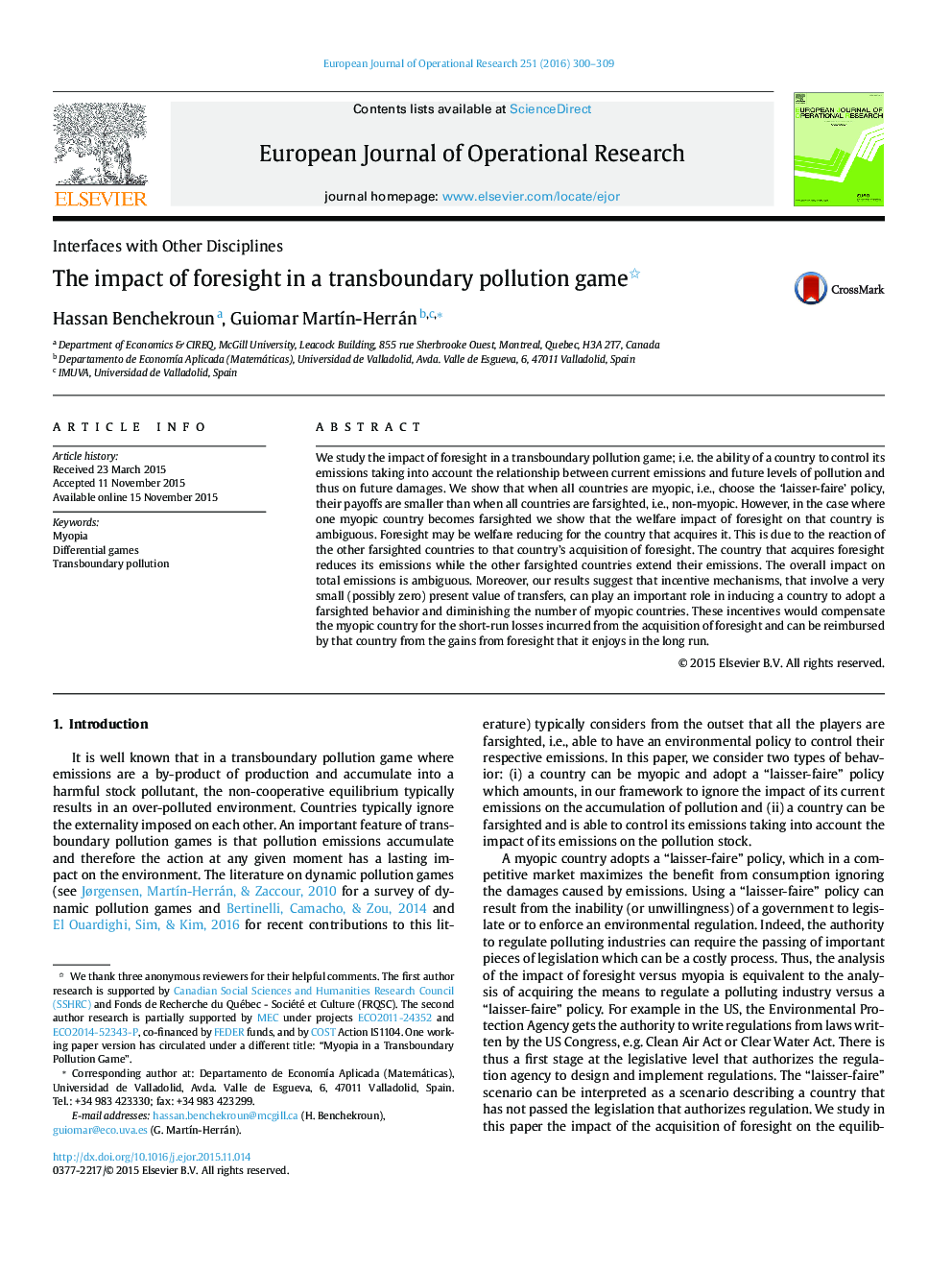| Article ID | Journal | Published Year | Pages | File Type |
|---|---|---|---|---|
| 480649 | European Journal of Operational Research | 2016 | 10 Pages |
•Transboundary pollution game where some players adopt a myopic environmental policy.•Farsightedness may not benefit the country that acquires it.•The acquisition of foresight by one player may increase short-run global emissions.•Incentive mechanisms can play a role in inducing a country to adopt farsightedness.
We study the impact of foresight in a transboundary pollution game; i.e. the ability of a country to control its emissions taking into account the relationship between current emissions and future levels of pollution and thus on future damages. We show that when all countries are myopic, i.e., choose the ‘laisser-faire’ policy, their payoffs are smaller than when all countries are farsighted, i.e., non-myopic. However, in the case where one myopic country becomes farsighted we show that the welfare impact of foresight on that country is ambiguous. Foresight may be welfare reducing for the country that acquires it. This is due to the reaction of the other farsighted countries to that country’s acquisition of foresight. The country that acquires foresight reduces its emissions while the other farsighted countries extend their emissions. The overall impact on total emissions is ambiguous. Moreover, our results suggest that incentive mechanisms, that involve a very small (possibly zero) present value of transfers, can play an important role in inducing a country to adopt a farsighted behavior and diminishing the number of myopic countries. These incentives would compensate the myopic country for the short-run losses incurred from the acquisition of foresight and can be reimbursed by that country from the gains from foresight that it enjoys in the long run.
